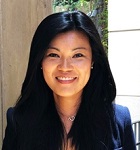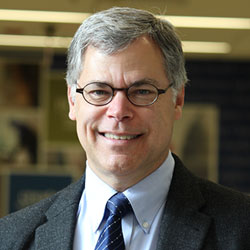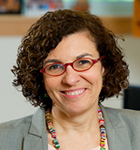Reflecting on Dornsife’s Commitment to Diversity, Inclusion, Equity, and Anti-Racism
June 30, 2021
In the summer of 2020, the Dornsife School of Public Health (DSPH) developed an Action Plan to Enhance Diversity, Inclusion, Equity, and Anti-Racism. The goal was to accelerate, support, and expand the school’s efforts to promote a culture of diversity, inclusion, and equity and to promote anti-racism in all school activities.
This action plan integrated the key values, principles and recommendations described by the 2019 Diversity and Inclusion Task Force and captured in the DSPH Diversity and Inclusion statement.
Additional areas of focus and activities were identified by school leadership with input from the Diversity and Inclusion Committee as well as faculty, staff, and students.
June 2021 marks one year since the school committed to these new initiatives. We asked DSPH faculty, staff and students (including students in the first cohort of inclusion, diversity, equity and anti-racism (IDEA) graduate fellows who were involved in these efforts to reflect on progress, share highlights, and envision the work ahead:
- Demi Adefarati, IDEA fellow in the department of Health Management and Policy (HMP)
- Scarlett Bellamy, ScD, professor of epidemiology and biostatistics and associate dean for diversity and inclusion
- James Buehler, MD, clinical professor and interim chair of the department of HMP
- Ana V. Diez Roux, MD, PhD, MPH, Dana and David Dornsife dean and distinguished university professor of epidemiology
- Jerry Fagliano, MPH, PhD, associate clinical professor and chair of the department of Environmental and Occupational Health (EOH)
- Patrice Farquharson, IDEA fellow in the department of Community Health and Prevention (CHP)
- Dennis Gallagher, MA, MPA, associate teaching professor in the department of HMP
- Jennifer Kolker, MPH, clinical professor of health management and policy and associate dean for public health practice and external relations
- Stephen Lankenau, PhD, professor and associate dean for research
- Phi Ngyuen, assistant dean of student and alumni affairs
- Leslie Ain McClure, PhD, MS, professor and chair of the department of Epidemiology and Biostatistics (EB)
- Maya Stallings, IDEA fellow in the department of EB
- Laneisha (Laney) Sullivan, IDEA fellow in the department of HMP
- Nina Sun, deputy director of global health and human rights and assistant clinical professor in the department of CHP
The IDEA Fellowship
A crucial step in DSPH’s action plan, the IDEA fellowship was initiated in the 2020-2021 academic year so that Black, Indigenous and People of Color (BIPOC) students could be financially compensated and recognized for their valuable contributions to the school’s anti-racism efforts.
What are some highlights or successes you had as an IDEA Fellow?

Adefarati: As an IDEA Fellow I learned that true progress is more than meetings, adjustments to curriculum, trainings, or readings. True progress, progress that ensures genuine equity, lies in the work we engage in within ourselves. We should never be too afraid to engage in radical, and consistent, self-reflection. All the anti-racism work in the world cannot negate the unconscious harms we may uphold and perpetuate. Not only can we do better, but we can also be better, every day.
.ashx?la=en)
Farquharson: The IDEA fellowship afforded me seats at tables for which I was previously not able to access. This opportunity has allowed me to learn about the innerworkings of academia, specifically the school of public health and I appreciated being able to openly advocate for IDEA work, have uncomfortable conversations and help create an environment of accountability.
It was a true honor to work with some of DSPH faculty and staff, specifically Dr. Sharrelle Barber, Tanisha Barnes, and the rest of the planning committee on the development of the new Ubuntu Center on Racism, Global Movements and Population Health Equity as well as Dr. Michael Yudell, Annie O’Brien and the rest of the CHP subcommittees on their anti-racism plan and supporting documents.

Stallings: I really enjoyed learning about the inner workings of DSPH. I had the opportunity to build relationships with the department chairs and understand the politics and leverage it takes to make positive changes. My work was used by professors to understand not only what work needed to be done within their scope of their courses but also what personal work needed to be done within to become a better person not just in their department but for our DSPH community.

Sullivan: Drexel reminds its students that ambition waits for no one. Working alongside a group of tenacious, hardworking, women from various (academic) backgrounds was a monumental highlight for me. Project after project, my team reinforced our school's motto aforementioned. I remained in awe to see the varied perspectives, opinions, ideas, and collective thoughts that have made our work impactful. One of my greatest highlights in working with this pilot program was not only meeting and speaking with my team and peers on a weekly basis but administrators and faculty in small intimate (Zoom-based) settings. These conversations kept us sharp, well informed, as we discussed team-based approaches on various projects amongst ourselves throughout the year.
Departmental Action
In addition to advancing the school’s overall plan, each of the four DSPH departments — CHP, EOH, EB, and HMP — each had their own set of activities to foster a culture of diversity, inclusion and equity and to promote anti-racism.
What department-level progress has been made?

Sun: CHP has always had an ethos of community engagement and social justice at its core – a couple years back, the department had developed its own DEI strategy. Building on this work, starting in summer 2020, CHP brought together faculty, staff, and students, including the IDEA fellows, to form the CHP Diversity and Racial Justice Working Group. The group’s task was to develop an anti-racism plan, aimed at assessing how well the department was addressing structural racism and health inequities, as well as making recommendations for further improvements to academic affairs, recruitment and retention and department culture. The process was consultative and rights-based; it resulted in a series of recommendations focused on recruiting, retaining and celebrating diverse students, staff and faculty, as well as increasing our teaching and research on the intersections of racial justice, public health and social justice more broadly.

Fagliano: With the help of the IDEA Fellows, EOH has focused on the academic programming component of the school-wide action plan. A faculty committee developed a framework for evaluating all of our departmental graduate courses for content related to environmental justice and structural racism in environmental and occupational policies. The department also established environmental justice as a theme for our seminars and journal club series in the winter and spring quarters. As part of an upcoming departmental strategic planning effort, we will be examining ways to promote diversity of students and faculty, and to expand research related to environmental health disparities and injustices.

McClure: In the department of EB, we have worked closely with the IDEA Fellows to implement change across many different dimensions. Our department is organized into several committees, so each committee has examined their practices and proposed changes that further our anti-racism agenda broadly, so that our self-evaluation touches our faculty and student recruitment, our educational programs, our social activities, our scientific enrichment, and our faculty evaluation. We have engaged in monthly anti-racism conversations, with a lot of focus on educational activities.
We have a new professor joining the department who will serve as Associate Director for Diversity, Equity, and Inclusion in fall 2021, and look forward to seeing the directions she continues to take the department.

Buehler: In the HMP department, we established an Anti-Racism Coordinating Committee that has involved students, staff, and faculty. A curriculum assessment workgroup developed two draft competencies related to racism as a fundamental health determinant and antiracism as an approach to policy making that can reduce health inequities. As a faculty, we committed to addressing one or both of these competencies in every HMP course beginning in the fall quarter of the 2020-2021 academic year, supported by syllabi review by Committee members before the start of each quarter and a survey of students at the end of each quarter to assess implementation.
Other workgroups have addressed anti-racism training needs for faculty, staff and students, which has informed our engagement with the Drexel Office of Equality and Diversity’s workshop program, strategies to improve the diversity and anti-racism awareness of our adjunct faculty, and our department’s engagement with the DSPH-wide anti-racism activities. We have welcomed the participation of the IDEA fellows in the meetings of the Anti-Racism Coordinating Committee and have appreciated the opportunity they have provided to share insights from parallel efforts across departments.
Curriculum
DSPH’s curriculum was reviewed by faculty and student members of the Curriculum and Assessment Committee (CAC) as part of the action plan. Together, they identified gaps and implemented changes needed to adequately address the topics of diversity, inclusion, racism, and social justice in DSPH’s academic programs.
What progress was made when reviewing curriculum at DSPH?

Bellamy: The larger takeaway from the curriculum review was our strategy moving forward. Broadly speaking, the plan is that the CAC will establish some minimum requirements that all DSPH training programs must meet. This strategy will allow individual training programs/departments maximum flexibility in developing curricular experiences to best meet the needs of students in their training programs. The idea for establishing a minimum standard will ensure that all students, regardless of program, will have some exposure to concepts related to anti-racist topics (e.g., diversity, inclusion, structural racism, social justice, etc.). To support these efforts, the Anti-Racism Subcommittee of CAC has assembled a number of useful recommendations and resources to support academic programs.

Gallagher: In response to concerns raised by students about structural racism and the responsibilities of the public health field to respond, the HMP faculty members committed to addressing structural racism and resultant health inequity in every graduate course, including strategies to dismantle institutionalized racism.
With input and assistance from students, faculty added new relevant content, if the subjects were not already substantively present in the course. Every graduate course identified a means of assessing learning about structural racism and health. Both new and “retired” courses that focus upon racism, health inequities and/or social justice were evaluated. Each term, students were asked to complete end-of-course evaluations to assess how effectively each graduate course addressed racism as a core public health matter, and how improvements could be introduced for the next year. This approach began in HMP and became part of a proposal to amend all of the school’s academic programs to achieve a similar goal, beginning next year.
Farquharson: As a member of the CAC subcommittee, we chose to focus on a strategy to infuse learning about structural racism into courses and programming to give scholars a well-rounded learning experience. Examples include: assessment methods to ensure instructor growth and the creation and implementation of a new competency specific to confronting structural racism and health equity.
The CAC subcommittee also challenged faculty to think critically about how structural racism intersects with their course material through the inclusion of hands-on experiences and utilize that knowledge to incorporate real world examples of how to combat it with an anti-racism public health lens.
Stallings: I was able to be part of the subcommittee that created demands and suggestions for the CAC to follow as implementation of anti-racism continues at the departmental level, specifically with what is being taught in courses.
Sullivan: The word “accountability” comes to mind when reflecting on the work accomplished between the fellows and administrators/faculty at DSPH throughout the past year. One of the greatest strides of progress made when reviewing curricula and action items at the school and department levels included how departments held themselves accountable to achieving change collectively.
The changes made benefit the entire school and more importantly, they were able to reach the following student cohorts to graduate behind us.
Faculty Training
For DSPH to strive to continuously create a culture and environment that actively promotes inclusivity and anti-racism, the anti-racism task force is developing a strategy for conducting regular trainings for faculty, staff, and students on topics such as implicit bias, microaggressions, and creation of safe spaces.
How do you feel these trainings benefit DSPH?
Bellamy: It is my view that true, transformative anti-racism work is just as much heart-work as it is head-work. I also recognize that individuals in any organization, including our own school, may be at vastly different stages in doing this work – either head- or heart-work.
Where I see my own role and the role of the school is to provide a set of resources and trainings that create spaces where individuals can move forward, no matter where their current position in doing the work happens to be. I see this as another example of ‘shifting the curve’ in a positive direction as it relates to this work – a familiar concept for us as public health practitioners.
Research, Practice, and Partnerships
DSPH offers practical opportunities and conducts research that focuses on identifying the critical effects of racism on health and the drivers of health inequities experienced by BIPOC. To increase these efforts, the Center for Public Health Practice and the Office of Research each conducted comprehensive assessments of current practice and research at the school to identify areas to expand.
As associate dean for Public Health Practice, how have you and your staff worked to increase student opportunities with BIPOC serving organizations?

Kolker: The first thing we are doing is just getting an accurate count of who all of our partner organizations are, if they are BIPOC organizations or focused on BIPOC communities. This summer, for the first time, we will have information from our students about their Applied Practical Experiences and the specific communities they worked with, which will enable us to determine where we need to focus and develop more student opportunities in the future. We are also looking at our partnerships more broadly to make sure that we are truly reflecting DSPH values related to diversity and anti-racism.
As associate dean for research at DSPH, how have you seen researchers at the school expand their research initiatives to further address racial health disparities?

Lankenau: The Research Office is taking a multi-pronged approach to addressing diversity and increasing anti-racist research at DSPH by increasing: visibility of all faculty research to BIPOC students; training resources and grant support for BIPOC students and faculty; and opportunities to dialogue and incorporate anti-racist approaches into research agendas for all students and faculty. An anti-racism research committee, consisting of a diverse group of staff, students, and faculty, is working towards achieving these goals.
Student Life
Expanding the ways in which DSPH is diverse, while also ensuring that the school is a welcoming community to all who join, is another vital goal of the action plan.
What work has been done to improve the experience of the DSPH’s student body and incoming students?

Nguyen: Although there were a lot of activities happening to support our BIPOC students and to support the anti-racism work at our school, our first step was to make sure we included students in our process and engage with students on how we would implement our anti-racism plans. IDEA fellows are currently working with the student services team on orientation programming, student organizations collaborations, special workshop ideas and overall improved programming to support BIPOC students.
During 2020-2021 academic year, the Student Services team also met with at least one of the IDEA Fellows on a bi-weekly basis to ensure that we were keeping a pulse on the student body needs and that progress was continuous in the student engagement areas of the action plan.
The team created additional funding mechanisms for students engaging in anti-racism projects together with faculty and anti-racism professional development opportunities. The result is the introduction of the first IDEA Service/Project Award and the IDEA Professional Development Award that aims at assisting students who are active in anti-racism efforts.
Over the last year, the Student Services team has created additional opportunities and activities during Orientation that focused on racism and public health and we created safe space programming and events to promote connections and support among BIPOC students. With our career services programming, we were especially interested in making sure our graduate public health students saw a diverse representation of BIPOC alumni and speakers further enhancing their research or professional networks.
Finally, we helped expanded the website and utilized it to consolidate all of the different ideas and work that is ongoing as an inclusive community. The expansion included a diversity and inclusion section on the DSPH website and student information on co-curricular programming and events, who to contact, a general email for reaching out to our IDEA Fellows and safe spaces and resources for students with special consideration for support resources for BIPOC students.
DSPH’s Future
In order to successfully fulfill DSPH’s mission, the environment for faculty, staff, and students must truly be inclusive and diverse. This work has required focus, engagement, data, and strategic direction and as it continues, more reflections will be shared.
What is ahead for the school?
Bellamy: I see this work as a process and not as a destination. It will grow and evolve as we all grow and evolve together.
I envision continual growth that moves us closer and closer to creating a welcoming and just space for all who enter our halls. And as we continue to grow and move in a direction towards becoming an institution that is open and welcoming to all and valuing all of our unique gifts, I think the school’s climate, research and prominence as public health leaders will also continue to grow.

Diez Roux: Advancing the agenda of antiracism in everything we do, ensuring an environment that is inclusive and welcoming to all, and maximizing the diversity of faculty staff and students is critical to our School and to our aspirations for the future.
It has been wonderful to see Dornsife faculty, staff and students come together building on the School’s historical commitment to social justice to reflect together, to have difficult conversations and to begin to implement an initial set of concrete steps to ensure that we are advancing antiracism in all we do. There is much work ahead and we know it will be hard work, but we are committed to making real change not only in our School but most importantly in our society.